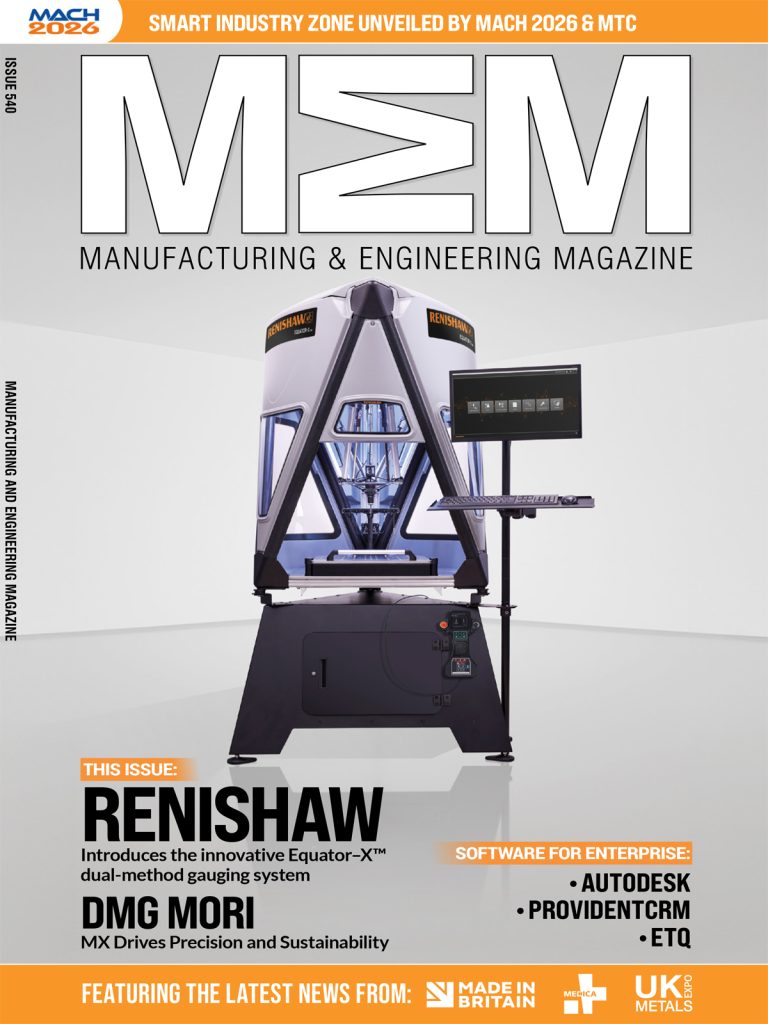Manufacturing Techspiration: Tech Trends to Watch Out for in 2020 : With 2019 largely dominated by the “should I stay, or should I go now” business uncertainty around Brexit, 2020 deserves to be a year of techspiration (inspired by technology) says John Roberts director at maintenance and manufacturing software company, Idhammar Systems. Talking about why technology should take centre stage in the new year, John explores three of the technology trends that are likely to have the biggest impact on the way the manufacturing industry operates in 2020 and beyond and delves into the opportunities that they present.
Industry 4.0
Whilst Industry 4.0 or smart manufacturing sounds like just more manufacturing jargon, it is important to understand that transitioning manufacturing and technology organisations to this level will be no mean feat. Why? Industry 4.0, often called the 4th industrial revolution, relies on manufacturing organisations to embrace rapid technological change. The goal – helping to drive business growth.
Yet ensuring that manufacturing companies stay ahead of the competition, requires identifying both existing and emerging manufacturing technologies and processes that can move the organisation forwards. Utilising the right software will help to track how organisations are doing and processes to improve overall efficiencies, will remain both valid and essential requirements. However, the skills conundrum and availability of fast-fibre broadband Industry 4.0 remains a challenge and this is proving to be a tough one. In the UK manufacturing sector, for example, it is estimate that 186,000 new engineers and manufacturers will be needed every year up until 2024. At present there is a deficit of around 20,000 new graduates each year. This should be addressed as a matter of utmost importance.
Quantum computers
In 2019 major players like Intel announced what are believed to be major breakthroughs in the production of control chips used to streamline the systems used to control quantum bits. Also known as qubits, these will be essential to the ability of manufacturers to scale systems to hundreds of thousands or millions of qubits. Essentially this makes it possible for these chips to function at extreme temperatures previously believed as impossible.
This brings the next level of supercomputing -quantum computing where atoms, ions, photons or electrons and their respective control devices work together to act as both a computer’s memory and a processor, a step closer to becoming reality. Hot on the heels of Intel’s scalable control system are tech giants IBM, Microsoft and Google all keen to show quantum computing’s edge over conventional supercomputers – a milestone known as “quantum supremacy”.
AI
AI is generally recognised as the technology behind things like facial recognition. In the manufacturing sector however, AI has the potential to revolutionise how manufacturing tasks like visual inspection, predictive maintenance, and even assembly are performed. For example, AI can be embedded within existing products or services to make them more effective, reliable, safer, and enhance their longevity.
This technology can also be used as part of supply chain management to help reduce overall costs via reducing transportation costs, warehouse management and ensuring efficient supply chain administration. It offers incredible benefits and as such is unlikely to fade away into the background, but I predict it will become more prominent in 2020, helping to realise heightened operations on site. Although it’s unlikely that this will replace the people element of manufacturing anytime soon, it is worth understanding how AI can be used to effect within the organisation, especially when it comes to improving manufacturing efficiency, product quality and the safety of employees.
Technology is evolving at a rapid speed, particularly in the manufacturing industry and forward-thinking manufacturers need to keep informed of these changes if they wish to stay ahead. From continued evolution seen as part of industry 4.0 to smart AI technology which can help to monitor site maintenance needs more efficiently and effectively, tech is very much on the agenda for 2020 and beyond, and manufacturers must embrace these developments if they wish to evolve and prosper.
Manufacturing & Engineering Magazine | The Home of Manufacturing Industry News













